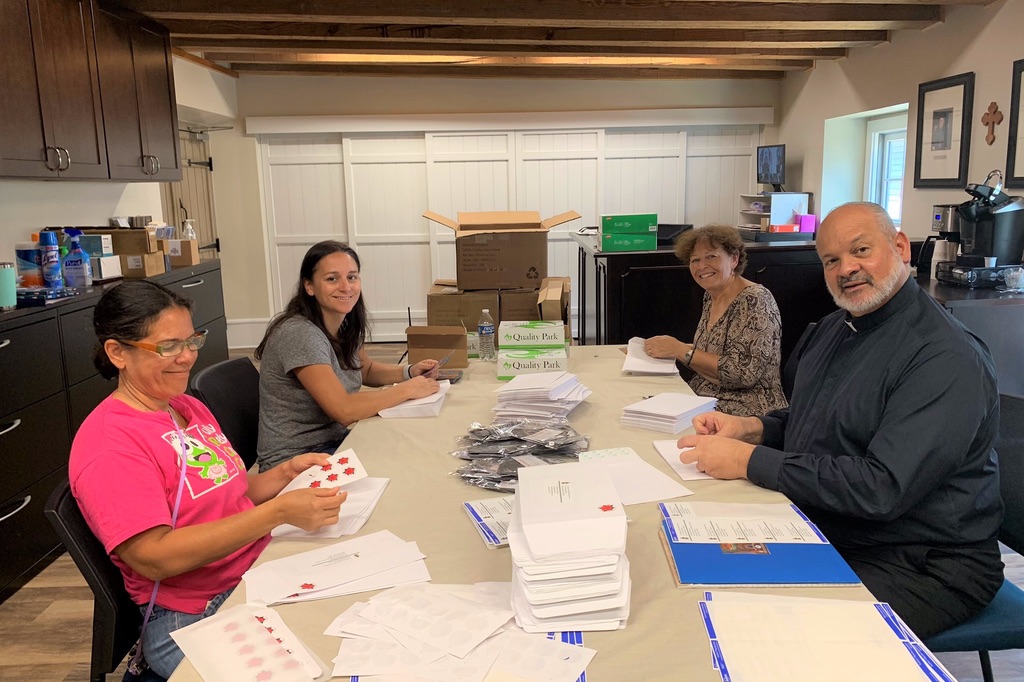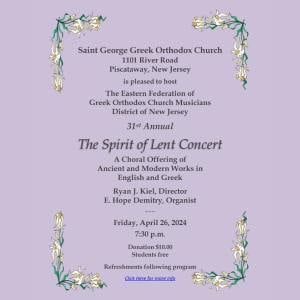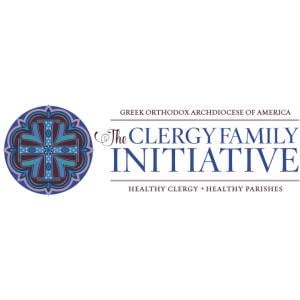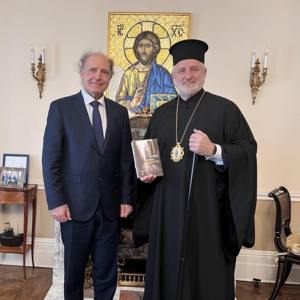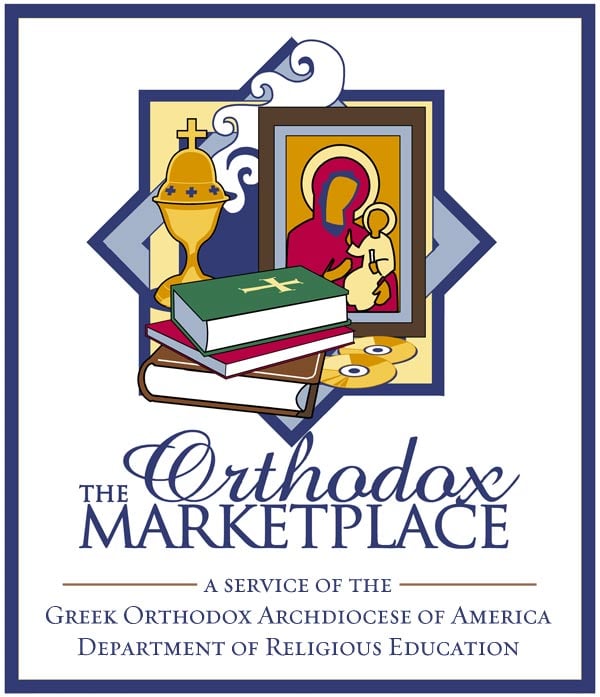“Putting a Face on Our Ministries”
An Interview with His Grace, Bishop Demetrios of Mokissos
May 18th, 2020
His Grace, Bishop Demetrios of Mokissos currently serves the ministerial position within our Archdiocese as the Hierarchal Proistamenos and Archdiocesan Coordinator of Saint Photios National Shrine located in Saint Augustine, Florida.
His Grace, Bishop Demetrios of Mokissos was assigned in September, 2019, by His Eminence, Archbishop Elpidophoros of America to the Saint Photios National Shrine, who charged His Grace to help uplift the image and historical reputation of the Shrine, as it is the first and, so far, only national shrine of our Greek Orthodox Church in our nation (this is until the later establishment of the Saint Nicholas National Shrine, currently being built at Ground Zero in New York).
Although well-known in the southern states, the Saint Photios Shrine is not so well-known on the national level. Thus, His Grace’s taskforce is to now help elevate the knowledge of this first shrine in the consciousness of our Orthodox Church and people, through its ongoing different programs and events, taking on more active roles in the communities, employing traveling exhibits, educational and historical presentations. All of these new programs were in the process of being implemented—before the current Pandemic and Coronavirus broke in early 2020.
It is helpful to know that Saint Augustine, Florida is the historical place where over four-hundred Greek Orthodox pioneers arrived in the New World on June 26, 1768, as indentured servants from Greece and Asia Minor, during the Ottoman Empire. Even before the United States became the United States, Greek people were here—initially taking refuge in the Avero House, on Saint George Street in St. Augustine, Florida, the oldest continuously occupied city in the United States of America. It was here, in the Avero House, that the survivors of the New Smyrna Colony found refuge following a decade of tragedy. His Grace’s vision is to not only commemorate the history of the Greek settlers in America, but also to document and to educate people on what the Greek contributions have done since—not just a memorial to the deceased but also to extol a monument to the living for their ongoing contributions: Greeks in fields of medicine, the sciences, the arts, etc.

A second aspect of Bishop Demetrios’ ministry is to develop an Orthodox ministry to the Spanish-speaking peoples throughout the nation, not just in Florida. This is an ambitious ministry that has received a grant from the Archdiocese’s Leadership 100 group to actualize a national conference of all the Spanish-speaking Orthodox and to create a Spanish-speaking outreach for the Orthodox faith. Originally planned for April, 2020, the conference became a temporary casualty of the Coronavirus, as did all other programs and Church services. But this portion of His Grace’s Shrine ministry aims to be renewed, once the Pandemic is over.
Thirdly, another aspect of His Grace’s duties is to be the Hierarchical liaison of the Assembly of Canonical Orthodox Bishops of the United States of America to the Orthodox Christian Mission Center (OCMC).
The Saint Photios Shrine gives His Grace the footing to do such work, and act as an advocate on a national scale, against diseases, as he once did while an Assistant Bishop in the Metropolis of Chicago.
Providing the Need for Facemasks
Through the Saint Photios National Shrine and assistance of dedicated faithful and charitable support-structures, Bishop Demetrios coordinated the contribution and delivery of 865 face-coverings to clergy for their use throughout the Archdiocese of America, who are now at the front line, serving our people and community during this Pandemic.
With the Coronavirus hitting, His Grace noted, “We thought now might be a good opportunity to provide something to our Clergy, as a gift from the Shrine, in the form of practical and necessary facemasks. Such a gift could be in memory and in honor of those first settlers who came here under terrible, physically life-threatening conditions: most died (perhaps 100-200) on the way over from Greece; others died of varying diseases within a year or two of settling in America.
“Out of that spirit, we wanted to provide something to our Clergy who are now on the front lines of ministering to people impacted with this disease already, or who will be, and to be able to help protect themselves from this coronavirus and from the spread of this virus.”
His Grace felt that providing facemasks, which are chronically in short supply, would be a nice gift that was made possible by donors, to whom His Grace reached out. Such donations helped not burden the financial structure of the Saint Photios Shrine, and gave Bishop Demetrios and his staff the ability to procure and personalize the facemasks and send them out.
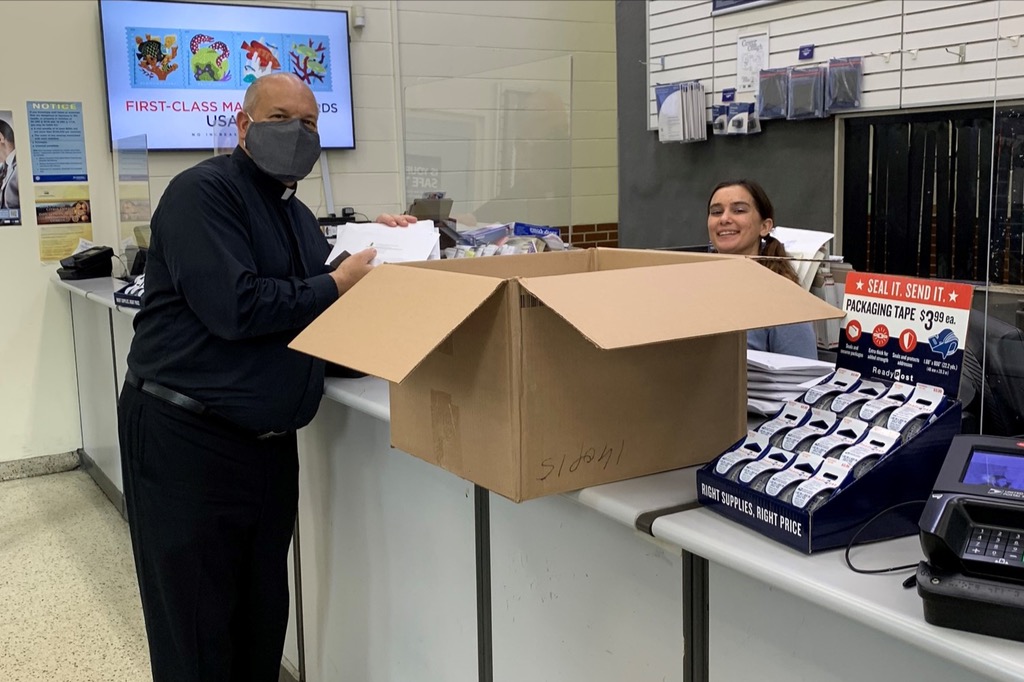
One of the things that this Pandemic has really brought to illustration is the need for our Archdiocese, collectively, to showcase what we do in terms of charities, and in ministering to our people. In our individual parishes, we recognize what our Philoptochos groups are doing, what our various Church ministries are doing to assist, preserve, and elevate our people—not just through the depth of theology but also through simple and practical applications.
His Grace settled on practical facemasks, because he saw they were a good opportunity: “As the Pandemic progressed, it seemed that, everywhere I went, people were wearing them. In different cities, they became mandatory, to go out and to enter public spaces. In my own home state of Illinois, they became mandatory and, if you were caught without wearing a facemask, you could be fined as much as $750.00.
“I thought providing facemasks would be a gesture of concern, not just for our clergy, but also for all those whom our clergy came in contact with. The Philoptochos chapters would make them for area hospitals and other places that greatly needed them. At one point, there was a great shortage of such protective masks. What we now have been able to obtain are three-layer cotton chambray-cloth facemasks that are washable, reusable, and look nice with a quality to them. They are charcoal-grey, and I thought they would be something handy and practical to use. The masks can remind our people of our—and their—national Shrine.
“The Shrine has never before been able to reach out to our clergy on a mass scale, so we are now saying to our priests that we are thinking of you, thanking you for your ministry. As a Shrine, we are here for you, and we want to help, as well. This is for you.”
When asked if the Shrine facemasks feature any scriptural encouragement, His Grace specified, “We didn’t put anything on the masks themselves. But on the packaging of the masks, there is a message from me, quoting Psalm 141/140, which says, ‘O Lord, put a guard around my mouth.’ So, the message can be interpreted in several ways—to guard against our speaking ill of anything, and the guard that is going to protect ourselves and others from this virus.” In this gentle way, the gift of the masks is personalized with a spiritual quotation of solace and benefit to the wearer, and gives witness to our Orthodox identity and faith.

About the quality of construction of these facemasks, His Grace said, “The Philoptochos couldn’t make the volume of facemasks that we needed. Everyone was engaged with making them for their own parishes so, for expediency, we found a company online, SwaddleDesigns (https://www.swaddledesigns.com/). The founder/owner, Lynette, is a mother of two, and a Registered Nurse. She made baby blankets for the longest time and, with this Pandemic, converted her baby blanket factory in Seattle to making masks. I told her what I’m doing and she gave us an enormous discount, because she was very moved by our program.”
In discussing how providing facemasks addresses the educational aspects of our people’s faith and parish ministries, His Grace observed that “It educates others that our priests are human and they are vulnerable to everything that we all are vulnerable to. My intent with our facemasks was to help. I like this question a lot. Also, this project dovetails with my past ministries in the early 1990’s, when we started the Bishop’s Chicago Task Force on AIDS. That was a time when there was a lot of ignorance around the disease, as priests were unsure how to minister to people with HIV. We were condemned for starting the ministry. And then, when we had the program up and running, and the populace were educated, everyone was proud of the program.
“It’s typical: the 19th century German philosopher Arthur Schopenhauer said that “All truth passes through three stages: First, it is ridiculed. Second, it is violently opposed. Third, it is accepted as self-evident.” That’s exactly what happened in the past. So, my personal history is with these ministries, dealing with social justice issues and issues that affect us as people of faith living in this world. Because we are living in a broken world and we are susceptible to diseases, just like everybody else. As well, we can also pass on illnesses like everybody else. So, I think it teaches a practical aspect of the Church in the world, and how we need to be vigilant in the world. We can’t just walk around with our hands in the air, saying God will provide, without using our hands a little bit, too. God gave us the means to combat illnesses, and the intellect to figure things out.”
Here, it is worthy to note that, in 1992, Bishop Demetrios established the Bishop's Task Force on AIDS, the first formal Orthodox Christian response to that Pandemic in the western hemisphere. As this ministry received widespread recognition, its founder-coordinator Bishop Demetrios was named Outstanding Community Leader by the Cook County Board of Commissioners in 1995, and received the Jim Noone Award for Religious Leadership from the AIDS Pastoral Care Network in 1997. The Task Force has since become a resource for the entire Greek Orthodox Archdiocese of America. From 2001 until 2004, he served as board member of Chicago's Alexian Brothers' Bonaventure House, a premiere residential care facility for people living with HIV/AIDS. In August of 2005, Bishop Demetrios was honored with the Alexian Brothers AIDS Ministry 2005 President's Award.
His Grace was then asked, in moving forward, if there was anything he would like to highlight in terms of people and/or priests actively participating in their own safety and healthcare. It was noted that the distribution of the facemasks is a wonderful illustration of educating our people, showing by example. We still may have a number of people who are still resistant to wearing facemasks—just by this practical giving, starting with the priests, it might be an incentive to positively and actively help people and parishioners, to continually remind them to participate in their own safety and own sense of healthcare.

For example, during one of his many recent parish visitations, His Eminence, Archbishop Elpidophoros made the point that medical and scientific experts currently agree that a potential “second wave” of Coronavirus may be coming in the Fall. And, as we are looking at the statistics now, with the beginning of the multiple re-openings of the state parks and public spaces, the numbers of new, positive victims of the virus are starting to spike up again.
So, through His Grace’s ministry and this example, we all may be inspired to remain (to use His Grace’s word) “vigilant” and realize that “it’s not over yet.” This Pandemic has fundamentally changed our society and our culture. Just because we are slowly now incrementally opening the churches, the state parks, and public spaces, we still have to maintain a sense of reality that the illness is still out there.
In response, Bishop Demetrios observed that, “Our people are culturally a ‘touchy-feely’ people. It’s rough not to be expressive through tactile contact with others. I catch myself not being able to embrace or shake hands, and it seems so hard and awkward . . . .We question, how do we greet each other? Do we embrace, touch or not touch, wave weakly to each other?”
Our hope, then, is that, as our culture changes by force of circumstance and illness, we may all be inspired be the ministering “hands” of our Lord, to help ourselves and help each other.
In conclusion, when asked if there were any question His Grace had not been asked yet or if there were anything he’d like to feature, Bishop Demetrios offered that he would like for the Saint Photios Shrine to experience a positive direction, as well—and this program is one way to bring illumination to the Shrine.
Once this Pandemic calms down, His Grace would like people to come and visit the Shrine in Saint Augustine, Florida. His Grace and the Shrine will be able to reach out and present their educational exhibitions in travel. They hope and pray this epidemic ultimately ends—and that we don’t lose any more clergy and more parishioners than we have already.
His Grace concluded, “We want to keep them all in our prayers. In our Shrine, we have a beautiful chapel and, once a month, we offer a Paraklysis Service offering a special prayer for those survivors and those lost to us: all of us together in faith and solidarity, in common work and support together.”

